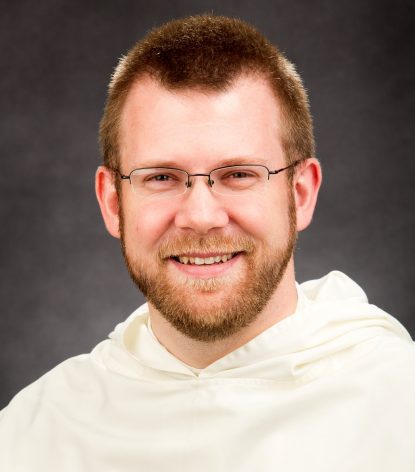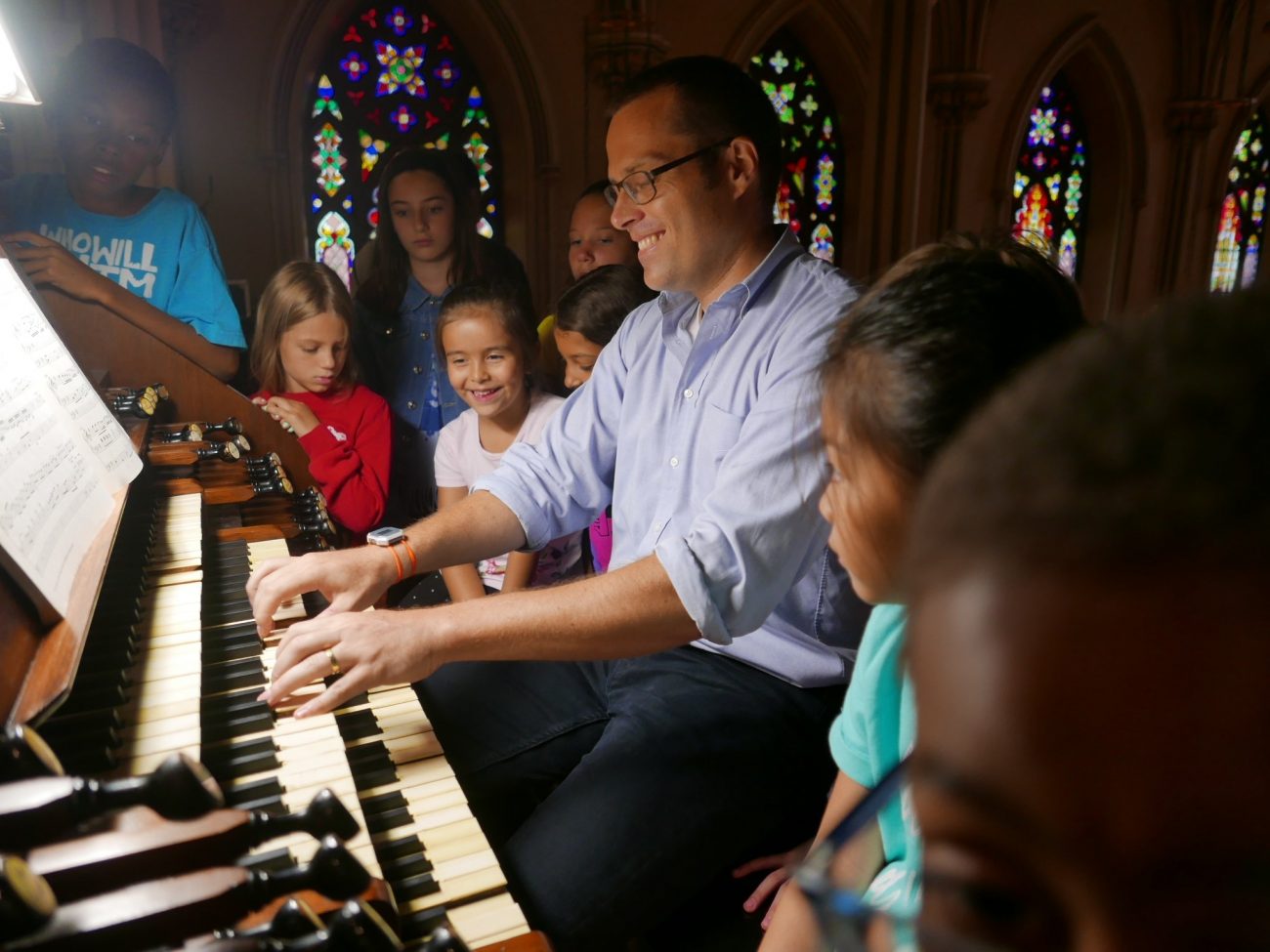There is good reason that we Catholics especially love our church’s customs during Lent and Easter. These seasons intensify the fundamental movement of our faith: the movement from slavery to freedom, the movement from death to eternal life that Jesus Christ alone can bring.
We pare down our lives to what is most essential. We die to ourselves, and we remember our baptism so that we can experience the basic direction that our lives took on at baptism — a direction of dying to sin, of dying with Christ, so that we can rise with him to eternal life.
In Lent, our experience is primarily that of our earthly journey, of taking up and bearing our crosses with Christ. In Easter, we rise with Christ and experience a foretaste of our heavenly reward. For that reason, we can think of the music of Easter as a foretaste of the music of heaven.

Father Vincent Ferrer Bagan is a Dominican friar of the Province of St. Joseph. (CNS photo/Kevin Trimmer, courtesy Providence College)
There is one song of heaven that is very ancient in the church’s worship and that remains throughout the whole year, even during Lent, since the music of heaven can never be wholly absent from our worship. At every Mass, after the priest invites us to lift up our hearts to the Lord, he invokes the angels so that we can join them as without end we acclaim: “Holy, holy, holy Lord God of hosts” (Is 6:3).
There are three musical elements, though, that the church mostly abstains from during the season of Lent, and I think we can see these three elements as expressing in a particular way the music of heaven.
The first of these is the Gloria: “Glory to God in the highest, and on earth peace to people of goodwill.” Like the “Holy, holy, holy,” we know that the Gloria, at least in its first line, is also part of the music of heaven. It is what the angels sing at the birth of Christ (Lk 2:14). Though this song is sung on certain feasts if they fall during Lent, it is never sung on the Sundays or weekdays of Lent itself.
We sing this song at the Mass of the Lord’s Supper on Holy Thursday, as we celebrate his institution of the Eucharist. But this song returns for good in a particularly dramatic way at the Easter Vigil when, after many readings from the Old Testament telling the story of our salvation, the altar candles are lit, bells are rung and all sing this song of the angels as the liturgy transitions definitively to the joy of the Resurrection.
During the Gloria, or at some later point in or after the Easter Vigil liturgy, we may also notice the return of the organ and other musical instruments. During Lent, the organ is only allowed to support the singing. We fast from the loud and glorious organ music that has developed in the church over the past several centuries.
At Easter, however, the organ and other instruments return to their full glory and extend the joy of our voices. We hear the king of the instruments ring out again with triumphant music celebrating this most solemn feast of the whole liturgical year.
After the Gloria and the New Testament reading, we hear another song return, one that we never hear or sing during Lent, a one-word song that will permeate the entirety of the Easter season: Alleluia! And this is sung not just once but three times, each at a higher pitch to signify an increasing level of exultation.
If you sing the chant version of this Alleluia, it rejoices in the way that chant music rejoices: not with increased volume or instruments but rather with more notes, as if we could continue to sing it forever.
If you are among those in the church who pray the Liturgy of the Hours in addition to going to Mass, you will especially feel how saturated the church’s Easter worship is with the word “alleluia.”
We add alleluia at the end of almost everything we sing. That we can even grow tired of the alleluia shows us that we may not quite be ready for just how joyful the life of heaven is; we are not quite ready to sing the song of heaven always.
That is the beauty of returning to Lent and Easter and their customs and music every year of our lives. If we allow the graces of the cross to take away all in our lives that is not of God, we will eventually be ready to celebrate the perpetual Easter of heaven, in which we will sing “Holy, holy, holy,” and “Glory to God in the highest,” and “Alleluia, alleluia, alleluia,” without end, rejoicing with all the angels and saints in God’s presence forever.
***
Father Vincent Ferrer Bagan is a Dominican friar of the Province of St. Joseph. He has worked as a church music director, has taught music and theology at various levels, and presently serves as the director of liturgical music at the Pontifical North American College, the American seminary in Rome.
PREVIOUS: Journey into hope: Let him roll back our stones this Easter
NEXT: Don’t clean up Calvary: The bloody, saving reality of Christ’s crucifixion



Share this story